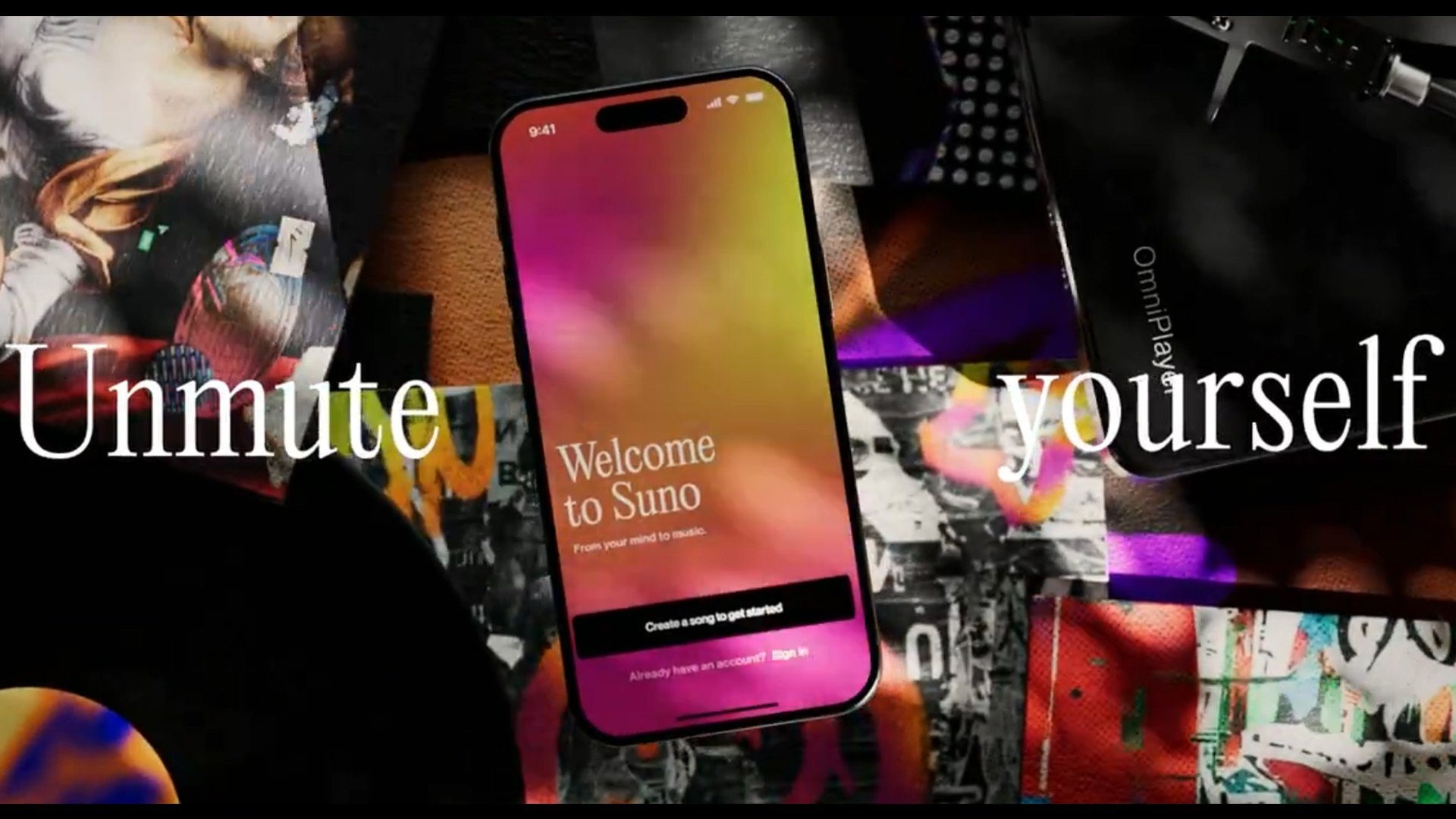AI music generator Suno release app, despite controversy
As Suno takes heat from the music industry over its legality, they dare to launch a mobile app which users can create songs with.
Suno are an AI music startup that lets users generate songs from their own prompts. They’ve become a fan-favourite for generating both humourous and surprisingly legitimate sounding songs. Suno have now launched a mobile app which iOS users in the US can use to create songs.
The free app lets users input prompts and lyrics, and even record audio with their device to create AI generated music. Users can also explore the creations of other Suno users. There’s plenty of music to explore, as Suno say over 12 million people have used their services.
Aside from the excitement of their app launch, Suno are facing strong criticism. The Recording Industry Association of America (RIAA) are accusing Suno and another AI music startup Udio of training their algorithms on copyrighted music. They point to songs that they have generated which sound distinctly like existing artists.
The RIAA claim that these companies are breaching copyright law. Suno and Udio don’t seem to expressly deny using copyrighted content to train their AI, instead seeming to favour a fair use argument. Suno CEO Mikey Shulman states that their technology generates “completely new outputs” and “doesn’t memorise and regurgitate pre-existing content”.
Suno’s app offers two subscriptions options at $10 and $30. These prices are inflated from the subscription charges on their website. This is likely due to Apple’s 30% cut of in-app payments from Apple App Store apps.
Suno’s subscriptions have been highlighted in lawsuits against them, writing: “Suno charges many of its users monthly fees to use its product… has monetised its service, charging users up to $24 per month for its highest subscription tier… Suno earns revenue by encouraging users to generate digital music files and exploit them commercially.”
Now that Apple are also profiting from Suno’s creations, it may cast an eye on them from the industry as complicit actors.
